A night in the woods
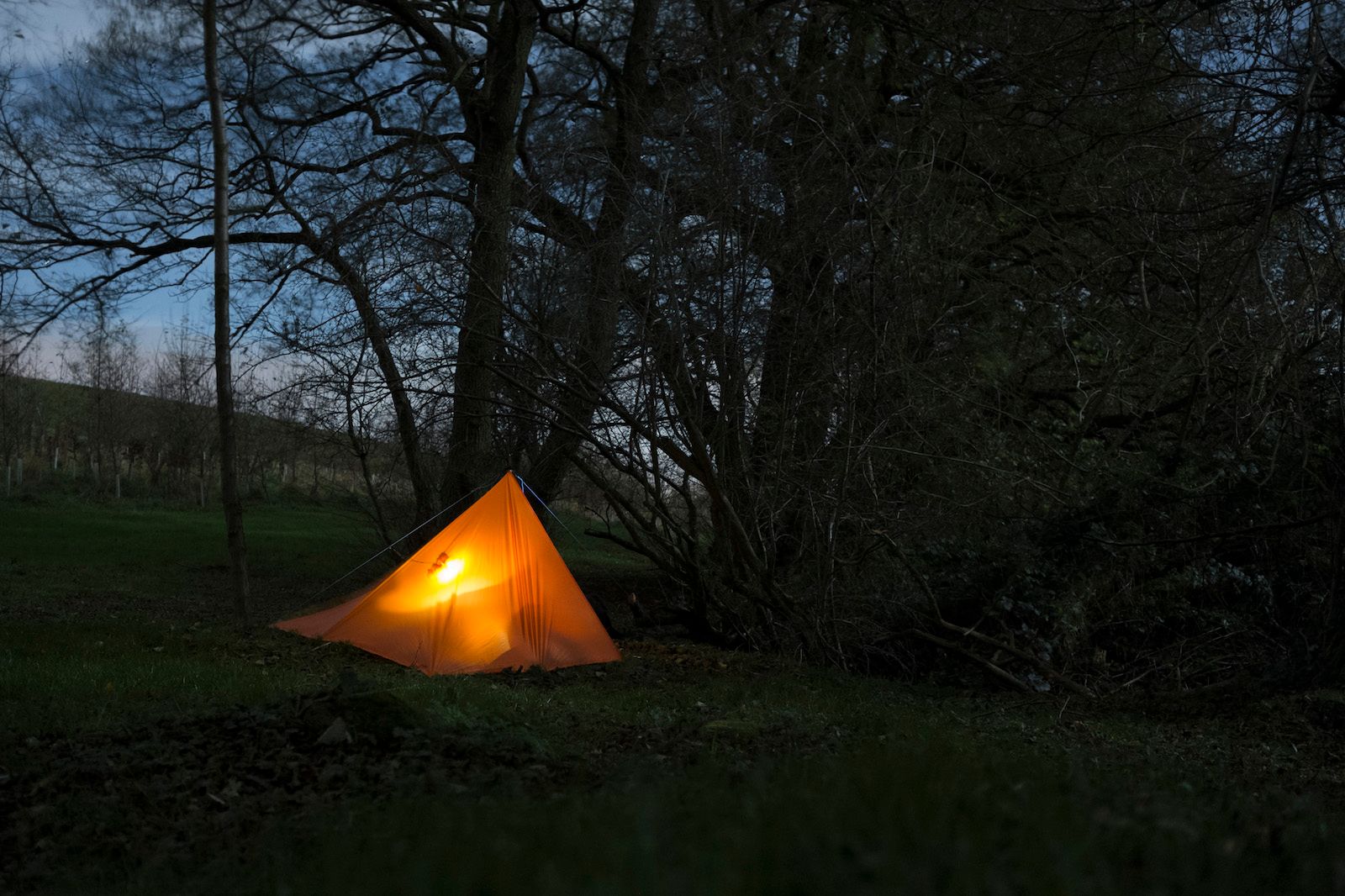
Since childhood, the woods have felt like home to me. I’ve roamed through them, beneath canopies of trees that – conceptually – belong to one greater forest that no longer exists, but which once covered most of Britain. I’ve spent countless nights sleeping out in the woods. It’s an activity as old as time.
Last night, I decided to head out to my local woods on the spur of the moment. I have never wild camped in the area before, but from previous walks I knew there were several likely spots where it might be possible to hunker down for the night. The weather had been bad earlier in the day – gale-force gusts accompanied by snow flurries – but the forecast was much better overnight, and something inside me yearned for a crisp, calm night under the stars.
I know the feeling well. I’ll sometimes go for months or even years between bivouacs in the woods, but then something in the wind, or a half-remembered feeling from one of those old camps, will trigger the need to go out again.
It was dark as I walked along the path beside the river flowing from Snipe Dales, and the frost was already starting to bite, firming up the muddy path. When I waded across the stream, ice crusted my shoes within minutes. A muntjac roared somewhere deeper in the forest.
I found the right place very quickly: sheltered, but with a view of the sky; well-drained and dry underfoot; concealed from the nearest paths. Pitching my poncho tarp took about thirty seconds and soon I was laying out my foam mat and sleeping bag. I set the tarp up as a half-pyramid wind break, but the weather was very calm by this point and hardly a breeze interrupted me all night. I could have comfortably slept without the tarp at all.
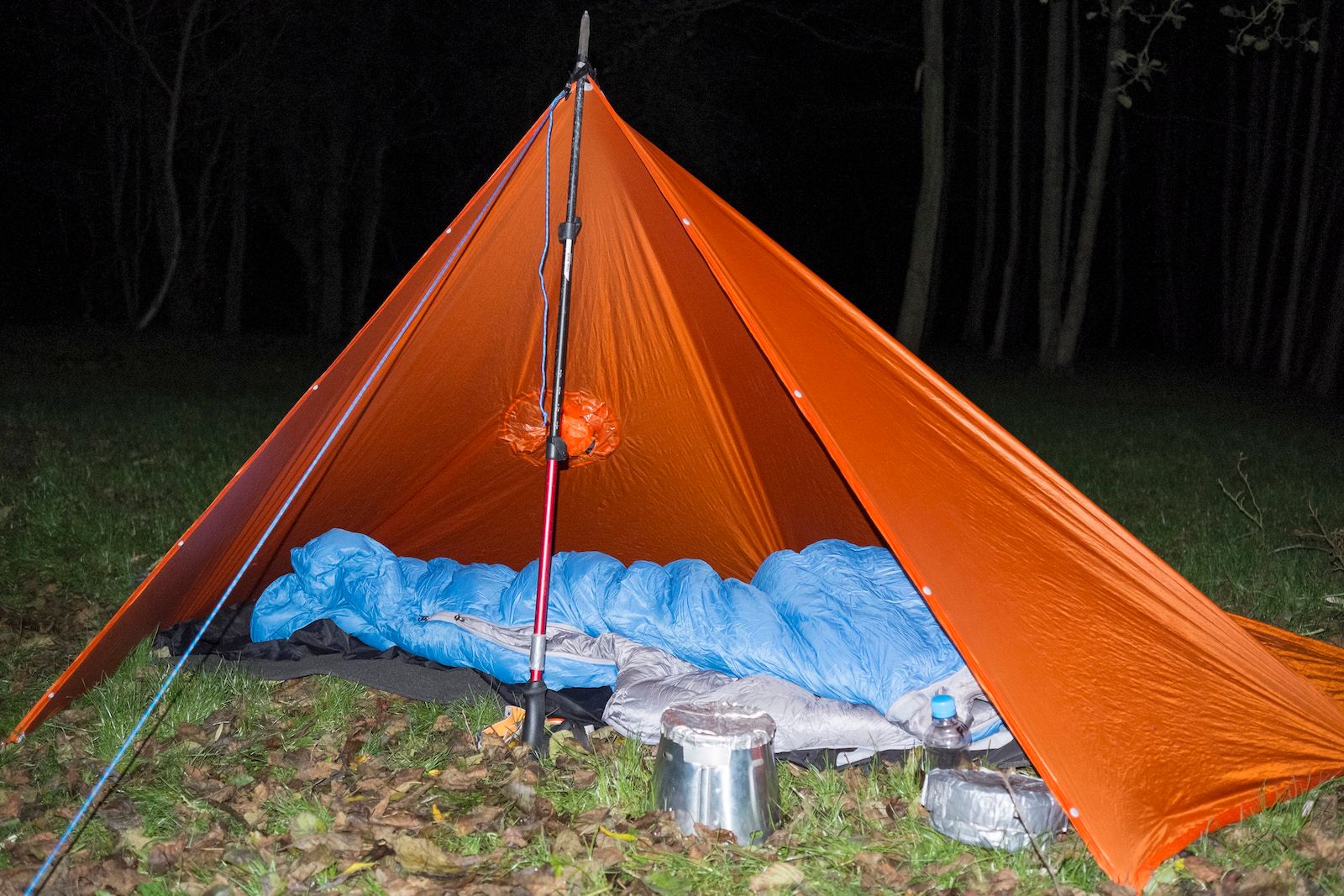
The next task was to get some hot food inside me as another line of defence against the night’s chill. The Caldera Cone made short work of a pot of pasta – so much for the claim that alcohol burners don’t work below freezing – and I made good use of my pot cosy, which heated up my sleeping bag as I waited for the pasta to rehydrate.
I wriggled into my bivvy bag and zipped everything up, relaxing into that familiar state of heightened awareness that comes from being alone in the forest after dark.
The moon shone through the open doorway and I could hear the river flowing just a few yards away. Small creatures snuffled and poked around in the leaf litter. A pheasant called suddenly in the distance, startling me. But mostly all was peace. This sense of oneness with the surroundings can only be achieved by camping with a bivvy bag or a tarp; in a tent you’re too enclosed, too cut-off from the environment.
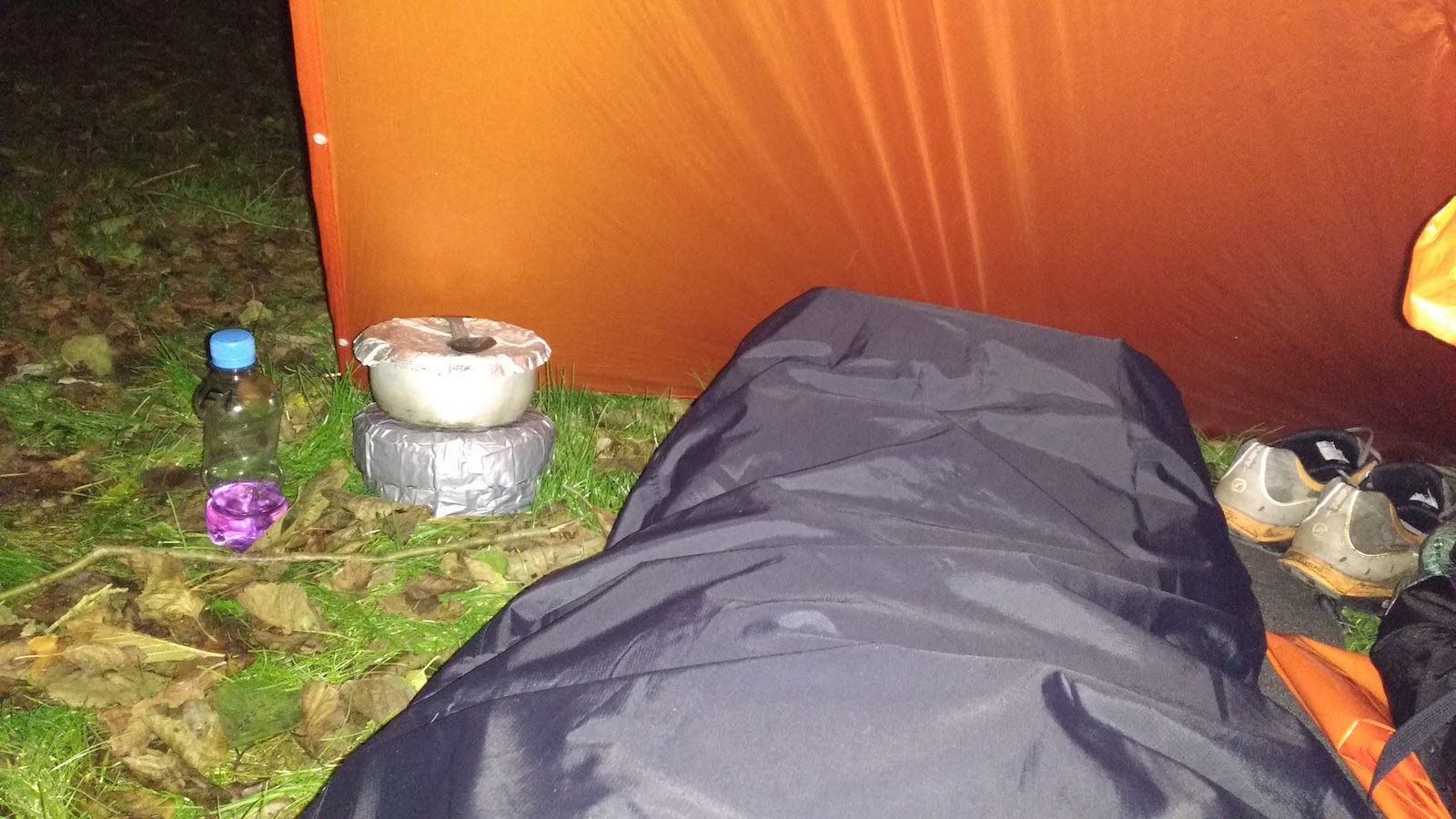
I carried a small thermometer with me, and it dipped to –3 Celsius before I went to sleep. I was warm enough in my sleeping bag, though, and I slept very soundly. I think the excellent ventilation within the tarp contributed to this – in winter, the atmosphere within a tent is always slightly damp due to condensation, but this was not a problem under my tarp, so I remained much warmer.
When I woke not long after 7.00 a.m., a little ice coated the outside of my tarp and frost tinged the leaves in the clearing. It was time to strike camp and head home.
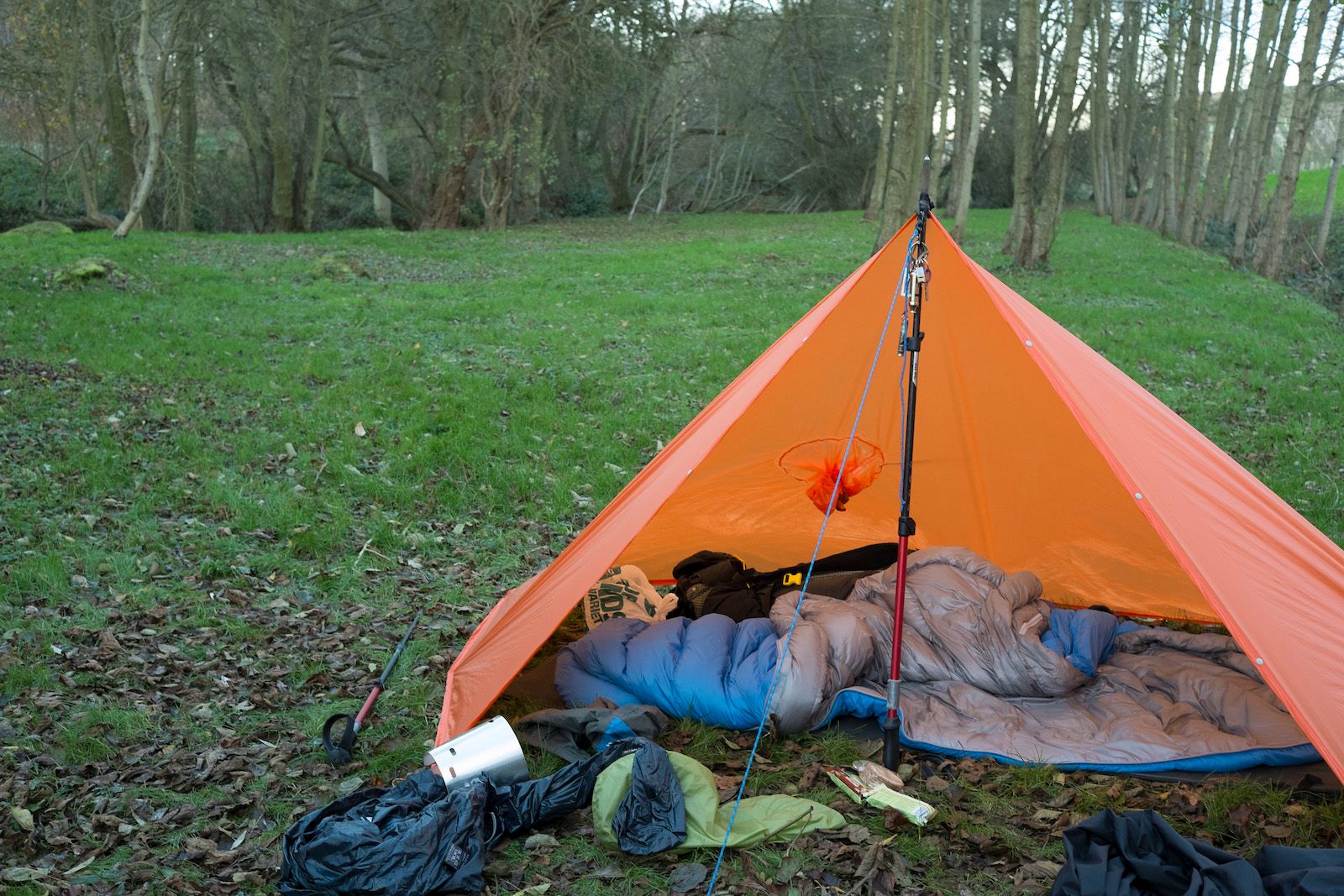
The thing I love most about a bivouac in the woods, spent without a tent, is that it’s timeless. I may be using modern ultralight gear, but my experience last night is similar to the experience of a Mesolithic hunter-gatherer twelve thousand years ago. The essential elements are the same: some form of insulation, shelter, and a sense of wonder and peace surrounded by the sights and sounds of nature under the moon.
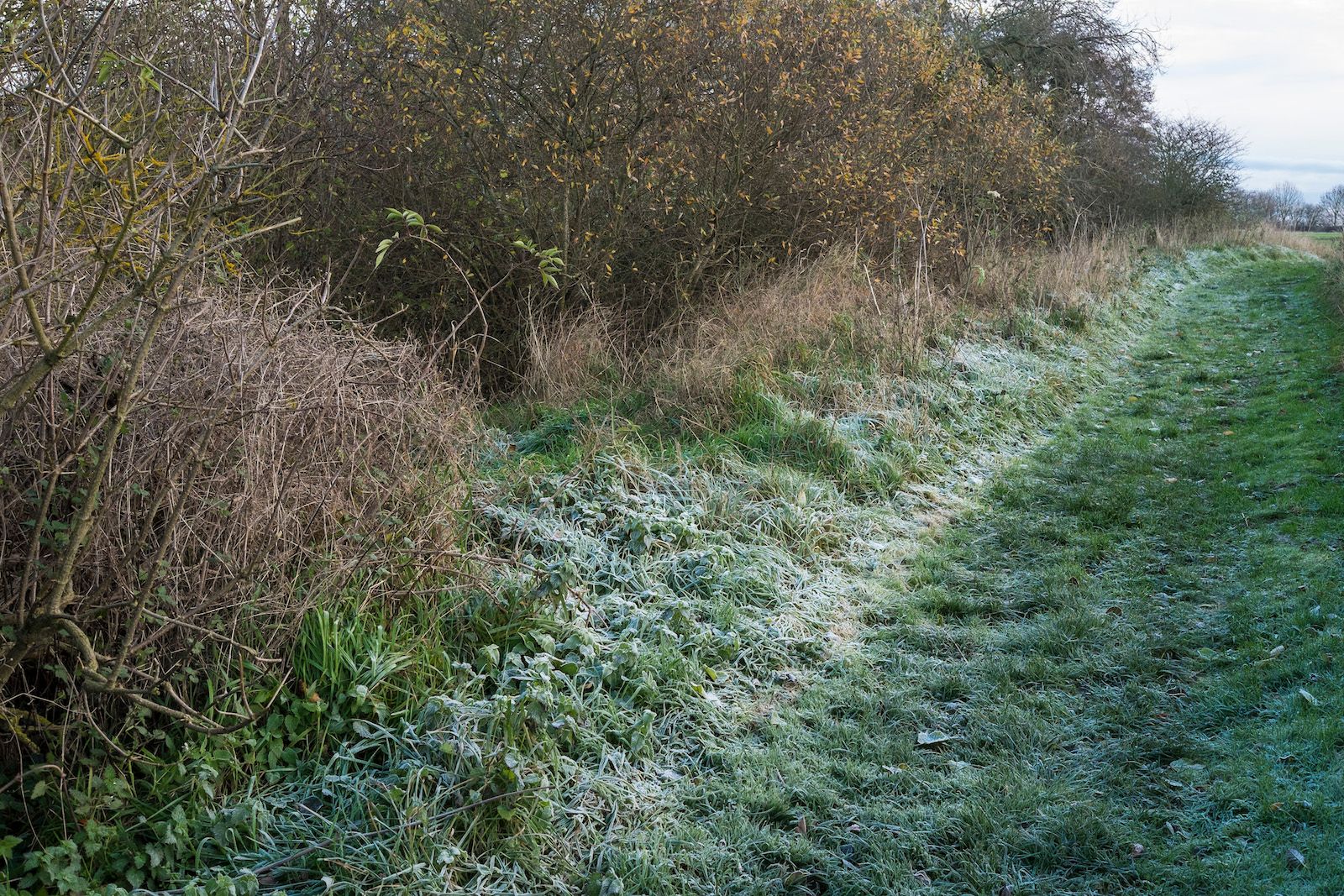
Alex Roddie Newsletter
Join the newsletter to receive the latest updates in your inbox.



